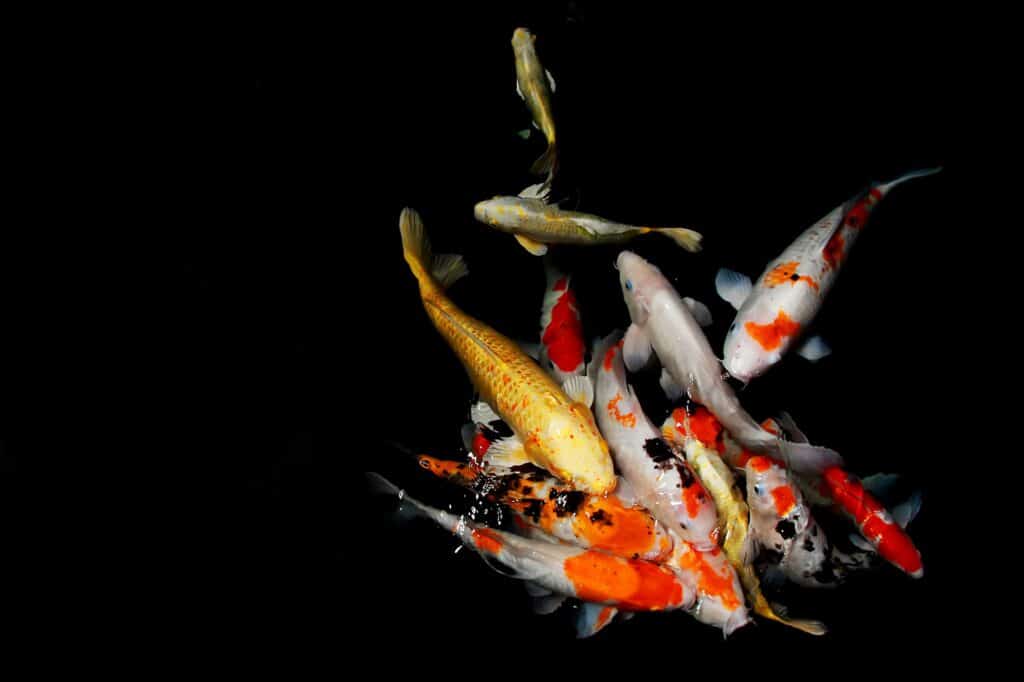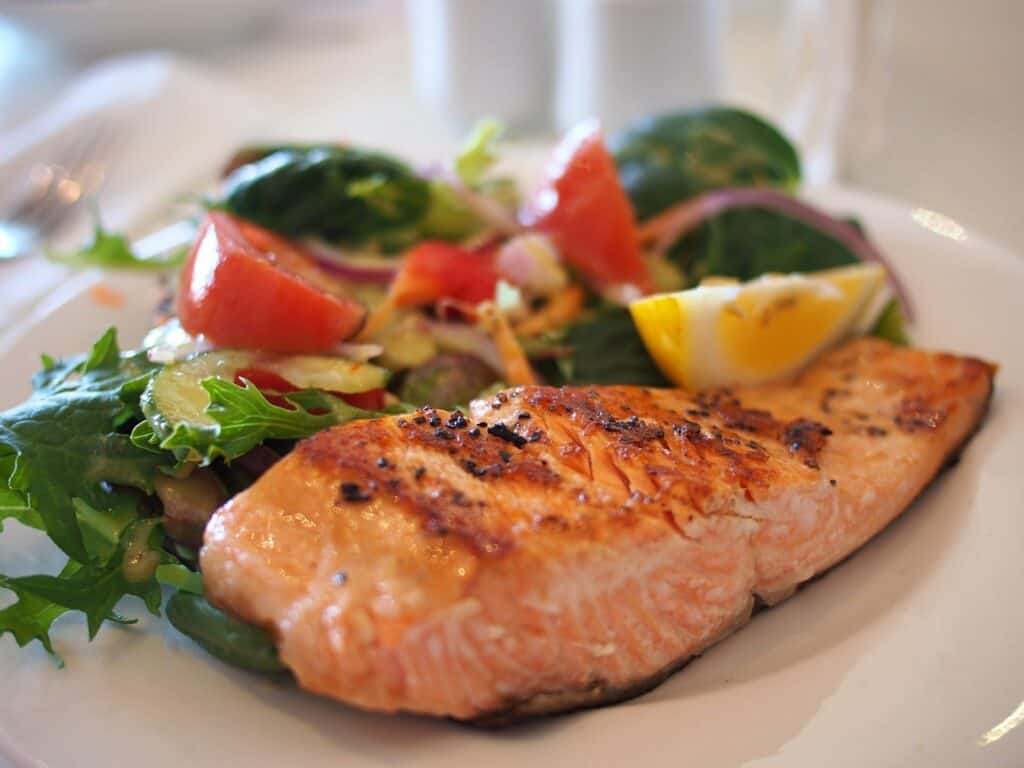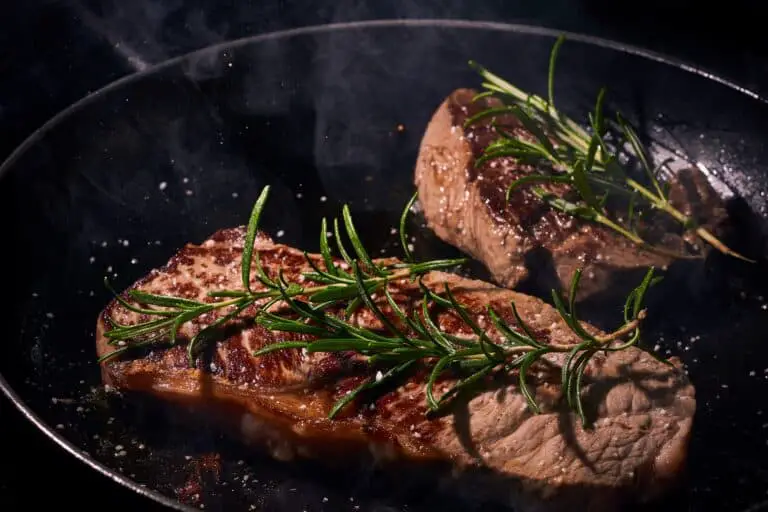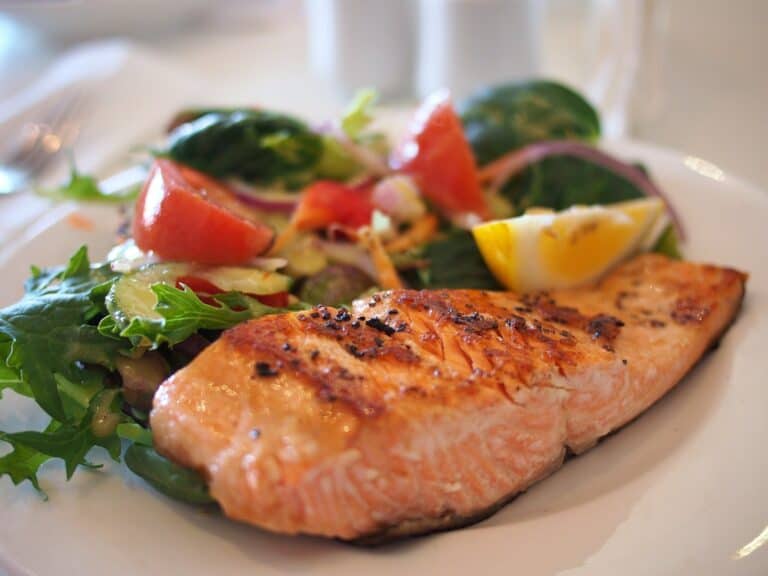How Long Does Cooked Fish Last In The Fridge?

All fish have a similar shelf life when it comes to how long they will last in the fridge. When fish is cooked, or prepared for storage, it can sit in the refrigerator for two days before being thrown out. If you are looking to keep the fish longer than cooking it is not recommended.
At what temperature should I store cooked fish?
Cooked fish should be stored at 40 degrees Fahrenheit or less. Cooked seafood has an increased risk of growing bacteria if not cooled quickly enough after being removed from heat, so it’s easier to control bacterial growth when refrigerating cooked seafood at lower temperatures.
Fish should never be allowed to sit outside of a refrigerator for more than 2 hours before it is properly placed inside. This will ensure the fish is stored at the right temperature. If cooked seafood has been pre-made prior to cooking, it should be placed inside of a refrigerator within 2 hours after which time bacteria growth can be increased.

How long does cooked fish if you keep it outside the fridge?
When food sits out in temperatures greater than 40 degrees Fahrenheit, your risk of bacterial growth increases drastically. Food that remains out longer than two hours could potentially harbor botulism causing bacteria, regardless of whether it’s raw or cooked.
This bacteria causes problems with nerve endings and can cause muscle paralysis making breathing difficult. It can even result in death if not treated immediately upon ingestion. The FDA estimates that nearly 250 people die annually from eating food containing this bacteria, and the majority of those end up contracting botulism by eating improperly canned foods or meats that were not properly cooked. How long does cooked fish last in the fridge?
Why does fish spoil?
Fish spoils for the same reasons as other forms of meat; either through cooking or through mishandling. Cooked fish can easily go bad if not refrigerated soon after it’s been removed from heat.
Fish is very delicate and requires proper care to ensure it doesn’t become exposed to harmful bacteria such as E. coli, salmonella, or listeria. Improper handling or storage can also lead to improper control over these bacteria which could result in sickness even death if consumed.
When fish is left in temperatures above 40 degrees Fahrenheit for more than 2 hours, the risk of bacterial growth drastically increases.
What are the signs that cooked fish has gone bad?
There are several signs that cooked fish has gone bad, including discoloration or odd odors. When seafood begins to spoil, it can emit an odor that some may describe as musky or sour smelling. The color of the flesh also changes when it’s beginning to grow old.
Once fresh seafood will be pale in color and should appear moist in texture with little visible fat near the skin. Spoiled cooked seafood will take on a dull appearance and begin to develop an oily sheen. If you notice either of these changes in your prepared food, discard it immediately.
Even if the food smells normal, it can still contain harmful bacteria that may cause stomach upset or worse.

When does fish go bad?
As with all foods, freshness is paramount when it comes to seafood. The best way to tell if your fish has gone bad is by its smell and coloration. When kept in optimal temperatures, fresh seafood should have little to no fat near the skin surface.
If there is fat sitting on top of the flesh under refrigeration, this means the fish went bad at some point during storage. Fresh seafood will also not emit much in terms of odor unless it’s been marinating in a wet brine solution prior to cooking, in which case you notice an increased saltiness in the smell.
After you’ve allowed your cooked fish to sit out for a few hours, it should begin to develop a fatty sheen on the surface of its flesh and emit a sour odor much like that of ammonia or chlorine. The color should also be significantly dull from its original vibrant shade as well. If this happens, don’t chance it and simply throw away any food that’s been left out by quickly refrigerating it before bacteria has time to grow.
To answer this, let us first have a look at the basics of food safety.
Foodborne illness can be caused by harmful bacteria. These pathogens are present all around us in literally every soil and water source as well as on plants and animals. Only under certain circumstances do these microbes become dangerous to humans, but if they contaminate our food, they have the potential to cause an infection which may lead to serious consequences for vulnerable groups such as children, the elderly, or sick individuals.
Toxins are also naturally occurring compounds created by some kinds of microorganisms that are poisonous for humans upon ingestion – botulism toxin is one example of that kind. Cooking usually destroys bacteria, but not necessarily toxins To avoid poisoning due to consumption of contaminated food, proper handling, and storage of food is crucial.
The length of time that cooked fish can be kept in the refrigerator before it should be discarded depends on the quality grade given to this food. Fresh fish has not yet been assigned a quality grade, but graded products are labeled as either Grade A or Grade B. The latter one should not even be sold for consumption, thus leftovers from cooking such fish do not fit into any kind of basic dinner menu.
- As mentioned above, a bacterium will thrive in conditions where they find ideal growth conditions e.g., room temperature water (20 °C/68 °F) or soil (30 °C/86 °F).
- Given their natural habitat, bacteria need only seconds up to minutes to transfer from the outside to the inside of a piece of fish.
- To make sure that they are not proliferating, cooked fish has to be cooled rapidly, meaning it has to be stored in the refrigerator at 5 °C/41 °F or lower within two hours after cooking.
- If this time passed, further storage is only possible if you cook the food immediately or freeze it until use.
If leftovers do not include pieces of sour-smelling fish, they may be kept in airtight containers for up to one week before cooking again. There is no need for washing or trimming before reusing them as long as traces of raw seafood juices were washed off beforehand. Fish with sour odors indicate an extended exposure to oxygen and should
How long can cooked fish last in the fridge?
The USDA recommends refrigerating fresh seafood within 2 hours after cooking followed by rapid cooling so it can be safely stored at temperatures below 40 degrees Fahrenheit. Food held at these lower temperatures will maintain its quality and only require cold-holding until
You can also read: How to reheat cornbread?






